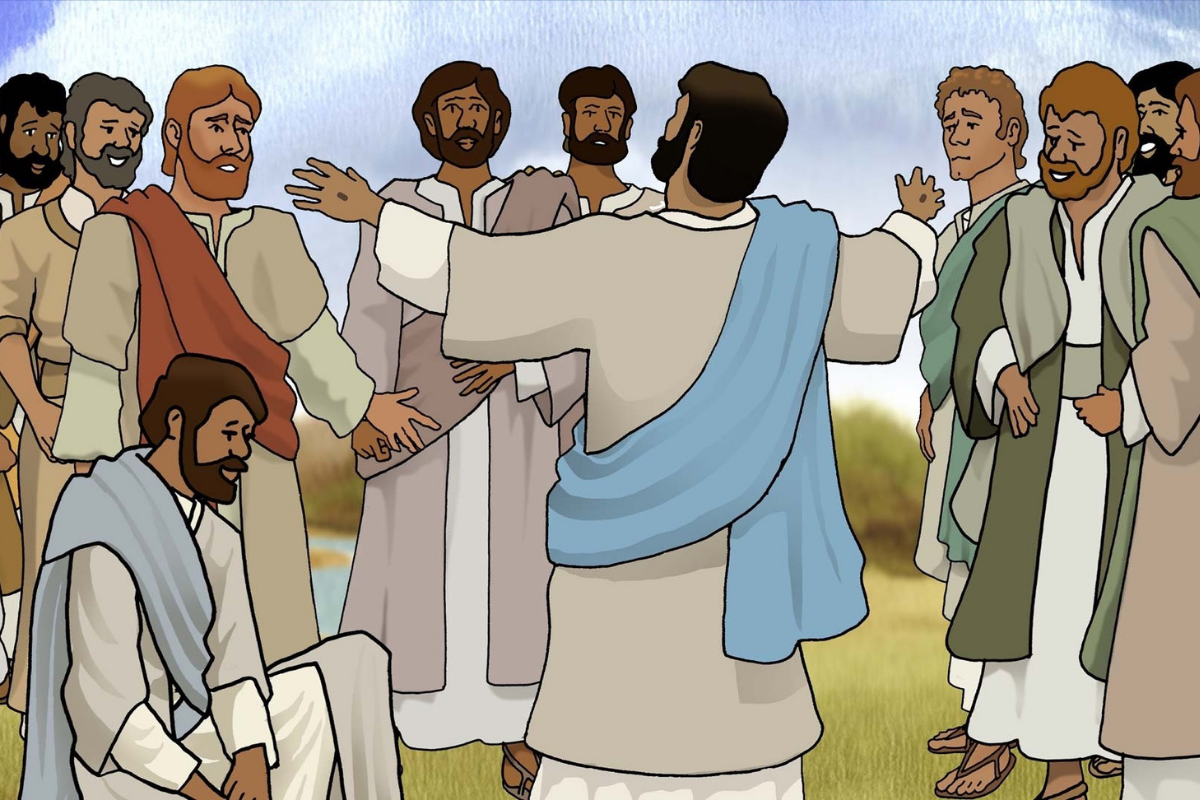
The Divine Marvel
In C. S. Lewis’ The Chronicles of Narnia, Aslan explains about the deeper magic from before the dawn of time: When an innocent victim voluntarily gives up his life for the guilty ‘son of Adam’, the stone table on which he is sacrificed would crumble and death would be undone. That’s the victory of Easter. At Easter, and on every other day, we must celebrate the “undoing of death”. (I have borrowed the title of this article from Fleming Rutledge’s fine book with the same title).
On that momentous Sunday morning, almost 2000 years ago, while the world was still wrapped in its sin-induced darkness, the Light of the world rose from the dead! The Lord Jesus had shattered the bonds of sin and death. He announces: “I am the Living One; I was dead, and now, look, I am alive for ever and ever! And I hold the keys of death and Hades” (Rev. 1:18).
Jesus comforts and commissions His disciples
The four Gospels have different portraits of the resurrection of Jesus. Each set of narratives is precious and significant in its own right. The last two chapters of John are a great pastoral resource for God’s people. Jesus gently and lovingly deals with his disciples. He enables them to overcome grief, doubt, and shame to become glorious witnesses of his resurrection and joyful servants of God’s people.
He comforts the devastated Mary Magdalene for whom her Lord was her whole life. Then, He commissions her as the first witness of the resurrection. Then he appears to the dejected disciples, who very soon, after Pentecost, are ready to lay down their lives to proclaim a resurrected Jesus. He recommissions Peter, entrusting God’s beloved sheep into his care.
The Cosmic Victory has been won
With Jesus rising from the dead, the definitive act of God’s victory has taken place. This has cosmic implications. The living God had now won the battle against the last enemy, death (1 Cor. 15:26). This victory over death is now shared by all those who believe. The resurrection of Jesus has now become the basic ground of our faith.
False ideas often embraced by believers
Many believers in Paul’s church at Corinth were turning away from believing in a bodily resurrection; apparently satisfied with the more familiar Greek (Platonic) understanding of the immortality of the soul—probably a more spiritualized idea of the resurrection.
Paul rebukes them of the total foolishness of their position and of the absolutely foundational plank of their faith being the resurrection of Jesus and their future bodily resurrection (1 Cor. 15). Sadly, even today, many Christians entertain the idea of a soul leaving the body at death and travelling to an eternal destiny.
The apostle rather speaks of the person “being with” Christ or “sleeping” in Christ, waiting for the transformation of our lowly bodies at the glorious coming of Jesus (Phil. 1:23; 3:21; 1 Thess. 4:13, 14).
The Kingdom of God – Already and Not-Yet
We now celebrate the coming of God’s new creation, the inauguration of the kingdom of God in the life, death and resurrection of Christ (Mark 1:15). Paul is very clear: “Therefore, if anyone is in Christ, the new creation has come: The old has gone, the new is here!” (2 Cor. 5:17).
The kingdom of God that Jesus announced, lived and still embodies in his resurrected body, is the theme song of the New Testament. The remaining stanzas will be sung when the fully-consummated kingdom arrives. The new heaven and new earth will arrive (Rev. 21-22). The whole creation that is groaning will be redeemed (Rom. 8:19-25). The resurrection of Jesus is the main signpost to that assured final victory of God, over all sin and evil.
Serving in this Kingdom
Meanwhile, you and I are called to live our lives in the life-giving power of the Spirit. We are foot-soldiers of this kingdom, going around fighting the war with the weapons of the kingdom: bearing witness to the Good News of Christ, speaking truth to power, identifying life-denying policies in our communities, serving others—even those who may appear as enemies—in sacrificial love.
We are to follow the enthroned Lamb wherever he leads us (Rev 14:4), all the while praying, “Thy Kingdom come on earth, as it is in heaven”.









